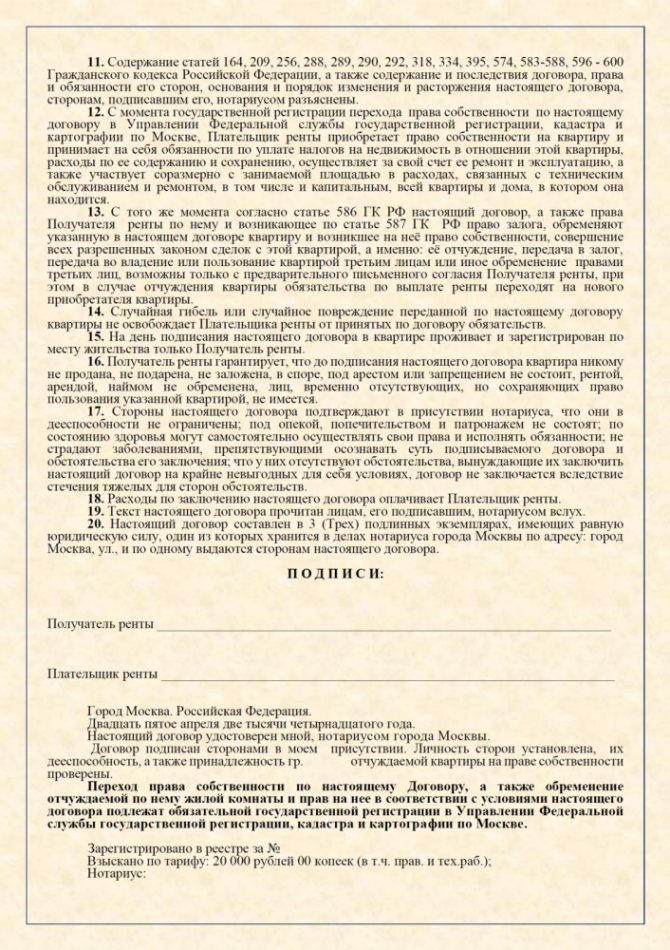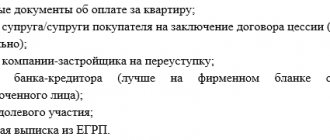⭐ ⭐ ⭐ ⭐ ⭐ Good day, dear readers of the blog, right now we will comprehend perhaps the most necessary and interesting topic for you - Is it possible to re-privatize an apartment. After reading, you may still have questions, so it’s best to ask them in the comments below.
We always and constantly update published information, so you can be sure that you will read all the latest information.
Established judicial practice indicates that the transfer of residential premises into the ownership of one tenant without formalizing the refusal of the persons retaining the right to this residential premises from the right to receive a share in the ownership of it cannot be recognized as complying with the requirements of the current legislation (paragraph 6 of the Review of Judicial Practice Supreme Court of the Russian Federation for the 3rd quarter of 2000).
Hello!! We have a two-room apartment, privatized for me and two minor children (13 years old, and 7 years old), privatization was formalized in 2010, can I now re-privatize the apartment only for myself?
Up ▲ — Reader reviews (2) — Write a review ▼ — Print version
“I live and am registered with my grandmother in an apartment. In 1993, the apartment was privatized for a grandmother, since in those years privatization was only for one person. I agreed. Since then, the conditions for privatization have changed. Is it possible to re-privatize an apartment for two owners or for me (with my grandmother’s permission, of course)?” Irina (Kursk).
In case of judicial deprivatization, the statute of limitations applies. It is 36 months. During the 3-year period, a person can initiate legal proceedings and restore rights. The period begins to count from the moment the person discovered (or should have discovered) a violation of his property rights.
If the target property is the applicant’s only home, then he has the right to deprivatize it. To do this, you need to draw up an application and send it to local administrative authorities. The package of certificates and papers discussed above is attached to the application. After the administration staff has made a positive decision, the applicant enters into a voluntary agreement with them.
Benefits of deprivatization
The legislation of the Russian Federation allows the deprivatization of previously privatized housing only. If the apartment was purchased under a sales contract, inherited or by gift, then it will no longer be possible to deprivatize it.
The sequence of actions when the question of whether it is possible to deprivatize one’s own apartment is solely the initiative of the owner is as follows:
- Preparation of the apartment for direct delivery to the state, which is carried out immediately after the decision is made.
- Contact with local authorities that deal with enforcement matters. Most often these are departments for housing policy or departments for migration actions.
- Obtaining an answer to the question whether it is possible to deprivatize a share in an apartment or a completely specific individual property, writing an application in the prescribed form.
- Collection of documents required by law.
- Direct transfer of an apartment or other real estate into the possession of local municipal authorities. From this moment on, housing has been officially acquired by the state; you can return your shared ownership again only according to a certain algorithm.
- Creation and registration of an agreement between the new owner of the apartment and its former owner.
- Creation and registration of a social tenancy agreement, according to which, when apartments or rooms are purchased by the state, the former owner becomes an ordinary tenant. This is only possible if, as the law states, the former owner of the property does not have another place of residence in the property.
We recommend reading: Categories of citizens of Chernobyl victims
Grounds for re-registration of property
Before we talk about re-registration of property, let us establish what ownership means. Civil legislation defines this as the right to use, as well as own and dispose of property. Thus, a person can do whatever he wants with his property - sell, donate, exchange, or even destroy, of course, if this does not cause damage to surrounding people and nature. Section 2 of the Civil Code (hereinafter referred to as the Civil Code of the Russian Federation) is devoted to this right.
Based on the provisions of the mentioned law, re-registration of ownership is nothing more than the transfer to another person of the right to dispose, own, use real estate or other property.
You may be interested in: what are the features of registering ownership of an apartment.
Sometimes it is enough to simply transfer the item to the new owner, and sometimes it is necessary to additionally draw up a written agreement. The latter is relevant for the transfer of ownership of an apartment. Based on the Civil Code of the Russian Federation, the Housing Code, laws regulating property relations, as well as the practice of lawyers, there are five ways to transfer an apartment to another person:
- Purchase and sale - the owner transfers the apartment to another person for a fee (Articles 549 - 558 of the Civil Code of the Russian Federation).
- Donation is a gratuitous transfer of property (Articles 572 – 582).
- Rent - a person undertakes obligations for the care and maintenance of the owner of the apartment or pays a certain amount during the period established by the agreement, and as a result receives it into ownership after the expiration of a certain time or the death of the owner (Articles 589 - 605).
- Exchange - in such a transaction, owners exchange property among themselves (Articles 567 - 571).
- Will - with this method, the apartment is transferred to the new owner after the death of the former owner and inheritance on the basis of a written order certified by a notary or a person specified in the law (Articles 1110 to 1175 of the Civil Code).
The procedure for deprivatization of an apartment

/ Apartment
The process of deprivatization of residential premises involves the transfer of housing from the private property of its owner to municipal property.
After such a deprivatization procedure, the former owner of the apartment, according to the law, loses the right to re-privatize the relevant housing, and also loses the right to conduct any transactions with the deprivatized real estate in addition to legal transactions relating to the exchange of housing.
The federal law, which allows Russian citizens to privatize residential real estate free of charge, has been in force in the country for more than twenty years. During this period, many apartment owners managed to take advantage of the granted right and register their housing as private property.
However, over time, some homeowners decided to exercise the right to reverse deprivatization of the apartment, after which the status of the owner changes to the status of a tenant, formalized by a social rental agreement.
Reasons for deprivatization of housing
The most common reasons for the deprivatization of apartments by Russian citizens today are the following motivations and grounds:
- reduction of annual real estate taxes. According to the new legislation, the tax on residential apartments will be calculated starting from 2020 taking into account their market value. As a result, homeowners' annual payments will increase significantly. Tax changes will especially hit low-income families and other socially vulnerable categories of citizens;
- reduction of monthly costs for utility bills due to the partial exemption of the tenant from paying for capital repairs, since since 2013 Russian legislation has established the obligation of the municipality to make partial payments for capital repairs for social renting;
- potential opportunity to improve and (or) increase living space. Such opportunities arise for the tenant, for example, when moving out of dilapidated apartments. Thus, if a citizen does not own housing, if he lives in a dilapidated apartment, Russian federal programs allow for the possibility of relocating social tenants to a new living space. Under this program, new residential premises are provided for the residence of citizens displaced from dilapidated housing, and the area of the apartment provided is determined based on the number of residents who will live in this apartment in the future. Accordingly, in the absence of ownership rights to existing housing, it is possible to obtain not only new, but also significantly larger residential premises;
- the inability to take away someone’s living space by fraudulent means. According to the current legislation in Russia, residents of municipal apartments who do not own privatized real estate cannot be evicted. In addition, purchase and sale transactions and donation procedures cannot be carried out with such municipal housing, since it belongs to the municipality.
Despite all the listed advantages, the consent of the homeowner to the voluntary deprivatization of his apartment and, accordingly, his renunciation of ownership rights to residential real estate must be carefully considered, since re-privatization is impossible .
Conditions and acceptable methods of deprivatization
The legislation addressing the issue of returning housing to municipal ownership states that low-income citizens who previously privatized housing before March 2007 have the right to transfer the corresponding housing that belongs to them on the basis of property ownership to the municipality or the state.
At the same time, municipal (state) bodies are obliged to accept the transferred housing by concluding a social rental agreement for the corresponding living space with the previous owners of the apartment.
Deprivatization of residential real estate by Russian citizens is allowed subject to 2 conditions:
- this housing should be the only place for permanent residence of the former owner;
- the apartment subject to deprivatization must be free from any legal obligations. Accordingly, it is impossible to transfer ownership of housing that is collateral under a loan agreement to the municipality. It is also impossible to deprivatize an apartment if the owner has rent debts. In these cases, the owner must first pay off rent arrears or pay off the existing loan, that is, free the transferred property from all existing obligations and encumbrances.
There are two ways to deprivatize residential premises:
- through the court, declare the agreement to transfer ownership of a privatized apartment invalid;
- voluntarily enter into an agreement to transfer housing into municipal ownership.
Judicial deprivatization of residential real estate
This method of returning housing to municipal ownership was used quite often until recently, when there was no legally regulated opportunity to carry out the appropriate procedure without a trial.
Currently, when a more convenient and simpler voluntary procedure for the return of housing to the municipality is available, judicial deprivatization usually occurs only if there are some violations in the legal agreement on the privatization of the relevant residential premises.
Re-registration procedure
Documents required for re-registration of an apartment:
- Passport;
- a document confirming the emergence of ownership rights (DCT, rent agreement, etc.);
- consent of the spouse, confirmed by a notary.
To re-register, you need to submit these documents to Rosreestr and write a corresponding application. Order of the Ministry of Economic Development of Russia dated November 26, 2015 No. 883 established that the collected package can be sent by Russian Post, through a representative, the online portal of State Services or the website of Rosreestr, MFC, or submitted in person to the branch of the registration authority. The applicant also needs to pay a state fee - 2,000 rubles.
After submitting the application, within 12 days the specialist will make a decision on registration or refusal (for example, due to an error in the execution of the contract), which can be appealed in court.
Thus, to re-register an apartment, it is necessary not only to draw up a written agreement, but also to prepare a package of documents and register the acquired property. Below we will look step by step at re-registering an apartment in different ways.
There is nothing complicated in the instructions provided, however, certain knowledge is required so that all actions and executed documents have legal force.
About the site:
Hello, Stas! The owner of the apartment is 1 person and he does not need the consent of people who are simply registered. The “pitfall” is: if these people do not want to voluntarily deregister, then it will not be possible to discharge them in all cases; even the court will not give such a decision. Good luck!
This is interesting: Do they hire people with gastritis?
Privatization of an apartment for one person
Sometimes it happens that not members of the same family are registered in the same apartment, but strangers. By joint agreement, all of them can and have the right to participate in privatization. It doesn’t matter whether relatives are not relatives... Any of them can also refuse, but he retains the right to live and use this residential premises for life. Please pay attention to this very important point. The owner of the property where the “refusenik” is registered will in the future be able to sell the housing only together with the “tenant” if the latter does not want to check out and has no other housing.
Despite the considered exceptions to re-privatization, there is housing that cannot be privatized a second time. Before preparing a package of documents for re-registration of ownership of an apartment, its legal user needs to find out the current status of the housing. There is a certain type of real estate that is not subject to the privatization procedure. This:
- A citizen needs to collect and prepare the entire package of documents in order to submit them to the registration chamber.
- The citizen will need to confirm and justify on what basis he wishes to use re-privatization.
- It is imperative that you write an application and submit it to the administration at the citizen’s place of residence or at the location of the apartment that is being privatized.
- After reviewing the application, the citizen will receive a notification containing either permission to proceed with the privatization of the apartment or a justified refusal (in writing).
- If the applicant has received permission to re-privatize the apartment, he will need to complete registration.
- The applicant will need to obtain an extract from the Unified Register on the assignment of ownership rights to the apartment.
Order and procedure for re-privatization
Taking into account the requirements put forward by the state, the privatization procedure can only be used again in exceptional cases, which must also be permissible and provided for by law.
It is impossible to sell a municipal apartment without privatization. But you can sell your home if you have already received a privatization agreement, but have not yet registered ownership. In this case, after the sale of the apartment, Rosreestr will simultaneously make a record in the Unified State Register of Real Estate about the previous owner and the transfer of ownership to the new one.
Purchase and sale
You can sell an apartment to absolutely any person or organization. To find a buyer, you can place an ad online or contact a real estate agent. Next, we presented instructions for independently conducting a transaction for a private apartment.
Step 1. Appraisal of the apartment.
Since the apartment lease transaction is of a paid nature, it is necessary to realistically assess its value. When selling, you can rely on the results of a cadastral valuation, but they do not always satisfy the owners or buyers of real estate. Therefore, it is worth contacting specialists to conduct an independent assessment of the apartment and determine its market value specifically for the period of sale.
Don't agree with the cadastral value of your property? Fill out the form to the right and our highly qualified attorney will tell you how to challenge the results of a government assessment.
Step 2. Prepare documents.

When buying an apartment with a registered child, the new owner takes on a big risk. Since he will not be able to discharge him without providing similar housing.
These documents are collected directly by the owner. The future owner should carefully study all the documents, and pay special attention to the USRN extract.
The buyer will only need a passport and the consent of the spouse.
Step 3. Draw up a policy statement.
This agreement is drawn up in simple written form, but in compliance with certain requirements. He contains:
- details of the seller, buyer;
- information about the apartment: address, location in the house, area, number of rooms;
- transaction price;
- payment method (cash, non-cash);
- payment method (one-time payment, installments);
- conditions for re-registration of ownership (after payment of the entire amount, after the first installment);
- rights, obligations of the parties to the contract;
- liability for breach of contract;
- additional conditions.
It is also necessary to draw up a transfer deed, which will be an annex to the agreement.
For the agreement, you will additionally need the buyer’s passport and the consent of the spouse (if he has one).
You can draw up this agreement yourself; notarized confirmation is not required, except in cases where one of the parties to the transaction is a minor child, incapacitated, the documents will be sent by mail, or when a share in the apartment is being sold.
Step 4. Register ownership.
Donation
You can transfer an apartment under a gift agreement to any persons, in particular, those who are not relatives. The deed of gift is gratuitous, so a real estate appraisal is not required; you can start immediately by preparing the necessary papers.
Step 1. Prepare documents.
To draw up a deed of gift, you will need the same list of papers as for the DCT.
Step 2. Draw up a deed of gift.
This act of will must be drawn up only in writing. There are no special requirements for the structure. But the deed of gift must contain:
- details of the parties;
- information about the apartment;
- rights, obligations of the donor and the donee;
- liability for breach of contract.
The need for notarization arises in the same situations as with DCT.
Step 3. Rewrite the apartment.
Rent
The legislation allows for the transfer of ownership under a rent agreement for a fee or free of charge. In the first option, the agreement specifies a condition for the periodic transfer of funds to the owner during his life (lifetime annuity) or indefinitely (permanent). And in the second there is a condition on the provision of services and the fulfillment of certain obligations - lifelong maintenance with dependents.
Does the rent recipient continue to live in the re-registered apartment? Write to our legal adviser by filling out the form on the right, and he will definitely help you solve the problem.
If the agreement contains a condition for payment, then the rules of the monetary contract apply to it, and if the transfer of property is free, the gift agreement applies. However, annuity is not one of these contracts.
You may be interested in the apartment rental agreement and its features.
Step 1. Prepare documents.
The package of documents for an annuity agreement does not differ from the DCP.
Step 2. Draw up an agreement.
The rent must also be drawn up only in writing and must be certified by a notary. Otherwise, the agreement will not have legal force. It includes:
- data of the parties;
- information about the apartment;
- rights, duties, responsibilities;
- additional conditions.
Step 3. Rewrite the apartment.

The procedure for reissuing air tickets to another person
Today, the most optimal and at the same time simple method is for the passenger to purchase a ticket at the airport ticket office and, before leaving it, decide on the need to make changes, rather than completing the transaction online via the Internet.
In this case, it will be quite enough to contact the ticket office again, where you purchased the ticket for a certain flight, and ask the operator to make the appropriate adjustments. As a rule, passengers are accommodated and within a few minutes they make changes, for example, changing their first and last names.
READ What actions should be taken if a flight is delayed, the responsibilities of the airline, conditions for receiving compensation
If quite a lot of time has passed since the actual payment of the air ticket at the airport ticket office or with an intermediary company, citizens need to personally visit the ticket office and report their desire to reissue the document or change the departure date.
You must have with you:
- a document capable of identifying the applicant;
- purchased air ticket for a specific flight;
- funds in an amount that will be quite sufficient to cover the costs of the procedure for making changes or a complete re-registration.
Experts strongly recommend that before contacting the cash desk, call the support hotline in order to clarify the full package of necessary documents, including the cost of future expenses.
If you purchase a ticket online online, the re-issuance procedure is carried out in a similar way - you need to write to the service support service and inform about the need to make changes to the personal data of the person indicated on the document.
The standard procedure in this case includes:
- Submitting a request to the service support team using the feedback form.
- There is an additional fee for making changes.
- Printing or saving an electronic ticket to your phone for presentation at the airport.
As a rule, it will take no more than 1 hour to complete the task via the Internet. In this case, it all depends on how quickly the money is credited to the intermediary’s account.
Exchange
In practice, apartment exchanges often occur within the same city, region or even country. It can be either without additional payment or with additional payment.
Step 1. Prepare documents.
For exchange, both parties to the transaction collect a package of documents for each subject of the contract, as in the case of purchase and sale.
Step 2. Draw up an agreement.
The peculiarity of this agreement is that the parties to the transaction act as a seller and a buyer at the same time. The agreement contains the same conditions as the above agreements. Notarization is not necessary; the contract can be certified at the request of the parties.
Step 3. Rewrite the apartment.
For all residents
Is it necessary to privatize an apartment for everyone? According to the law, the right to participate in the free privatization procedure once is given to every citizen of the Russian Federation.
Who can be a participant?
- identification documents;
- notarized consents or refusals of privatization;
- certificates of previous participation or non-participation in privatization;
- powers of attorney from persons who cannot personally take part in privatization;
- certificate - an extract about those registered in the apartment.
Currently, the legislation has changed, and when a privatization agreement is drawn up with several persons, housing is transferred to common shared ownership. What about those whose apartment remains registered as joint ownership, but circumstances arise when this needs to be changed? The allocation of a share in a privatized apartment is possible and provided for by law.
This is interesting: Payment of Cash Compensation to Labor Veterans of the Republic of Kazakhstan Komi
Will
The peculiarity of a testamentary disposition is that it comes into force only after the death of the owner. It also has an advantage over inheritance by law.
Step 1. Prepare documents.
To draw up a will, it is enough for the owner of the apartment to provide a passport and title documents for the apartment.
Step 2. Make a will.
To draw up a will, you must contact a notary or other authorized person. For example, if a person is in a hospital, then the head physician can certify the “last will”.

When receiving an apartment under a will, the heir acts as follows:
- Collects documents.
To receive an inheritance you must provide:
- heir's passport;
- testator's passport;
- original will;
- certificate of ownership in the name of the testator;
- extract from the Unified State Register of Real Estate.
- Presents documents to the notary.
To re-register the apartment in his name, the heir needs to obtain a certificate of inheritance. To do this, the documents indicated above are transferred to the notary for examination.
- Pays the state fee.
After reviewing the documents, the heir receives a payment order to pay the state fee. For children, spouse and parents of the testator, the payment amount is 0.3% of the value of the inherited property, and for other categories - 0.6%.
- Receives a certificate.
Having paid the fee, the heir receives a certificate of the right to inheritance - the basis for re-registration of the apartment.
- Registers property rights.
You may also be interested in: how to challenge a will for an apartment.





